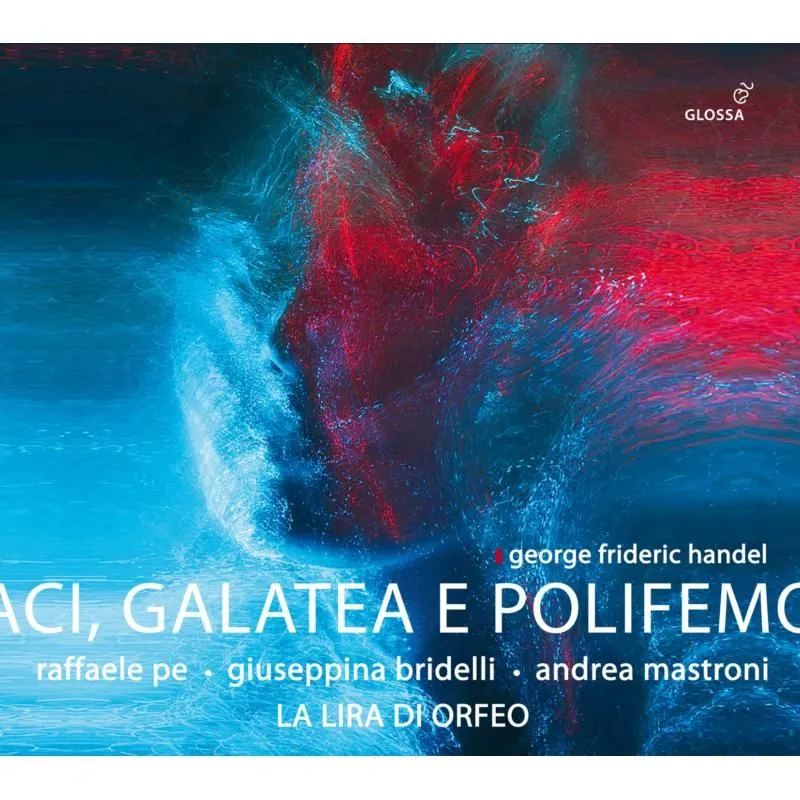
Handel Aci, Galatea e Polifemo Giuseppina Bridelli (mezzo-soprano); Raffaele Pe (countertenor), Andrea Mastroni (bass); La Lira di Orfeo/Luca Guglielmi Glossa GCD 923528 83:21 mins (2 discs)
This Aci, Galatea e Polifemo, based on Handel’s 1708 serenata, is led from the keyboard by director Luca Guglielmi. The performance score was prepared by Guglielmi, countertenor Raffaele Pe and Baroque violinist Fabrizio Longo from a post-1740 manuscript copy at the British Library. The fully staged production, livestreamed from Teatro Municipale di Piacenza in November 2020, is available to watch on YouTube.
Handel re-invented his serenata several times between 1708 and 1739, bringing out versions in Italian, English and Italian and English combined. While Guglielmi’s fidelity to his source manuscript is therefore justifiably loose, he sticks to the vocal types of Handel’s starry 1732 cast, in which Senesino sang Acis and Anna Strada del Pò sang the formerly castrato role of Galatea. Here Pe’s Acis loves Giuseppina Bridelli’s Galatea, while Andrea Mastroni as Polifemo shines in the most virtuosic music Handel ever composed for a bass-baritone, a bonkers part whose range extends from low D to A in the treble clef.
All three singers exercise their privilege to invent, increasingly altering their melodies as the action unfolds. Mastroni’s pauses, turns and rallentando make the extreme leaps and low notes of ‘Fra l’ombre e gl’orrori’ express black despair. But while Pe’s additions and plangent swells in Acis’s death scene are arresting, and Bridelli pours out her sorrow in diminutions, both Pe’s astringency and Bridelli’s ripeness ill-fit the tender Acis and sprightly Galatea. The recording is tinny, and ravishing continuo realisations are lost in the mix. So while all the artists are bold, and Mastroni is masterful, this audio recording is far from ideal.
Berta Joncus